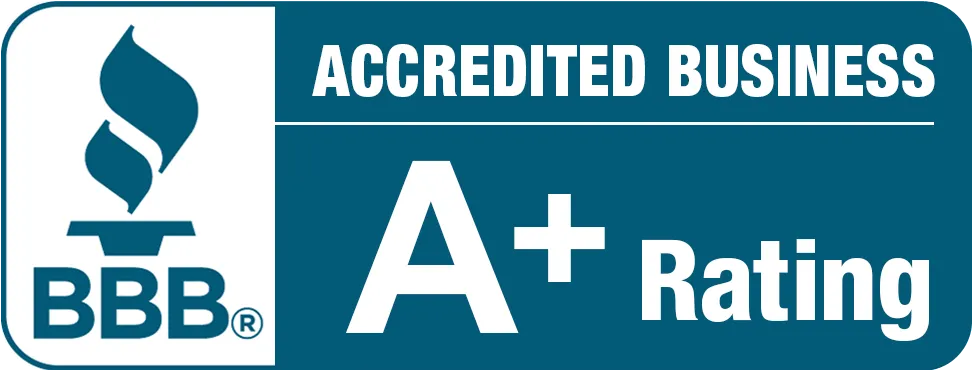Adams Heating & Cooling
HVAC Experts You Can Trust
Serving Tuscaloosa, AL, Birmingham, AL, and surrounding areas since 1982

Power Failures Hurt Your Business—Invest in a Generator Today
In today’s fast-paced world, power outages can occur unexpectedly and often have a significant impact on business operations. Whether due to severe weather, technical failures, or other unforeseen events, businesses that are unprepared for power disruptions can experience a halt in productivity, loss of data, and, ultimately, revenue. Power outages can also damage a company’s reputation, leaving customers frustrated when services or products aren’t available.
To protect against these risks, businesses must have a reliable backup power source. A generator plays a critical role in ensuring that operations continue smoothly, even during an outage. It allows businesses to maintain their services, protect valuable data, and safeguard customer trust. With the right generator in place, businesses can stay resilient and competitive, no matter the circumstances.
Risks of Power Outages for Businesses
Productivity Losses and Operational Interruptions
Power outages can bring a business to a standstill, disrupting daily operations and causing significant setbacks. In the absence of power, essential business functions such as communication, inventory management, and internal operations are halted. Employees who rely on computers, phones, and internet services to complete their tasks find themselves unable to work effectively, leading to wasted time and loss of productivity.
For many industries, even a brief interruption can snowball into much longer delays. Customer-facing businesses are particularly vulnerable, as a lack of power can disrupt point-of-sale systems, preventing transactions from taking place. Customers may be unable to make purchases, process returns, or receive services, leading to frustration and potential loss of business. In sectors like healthcare, financial services, or telecommunications, these interruptions could lead to even more serious consequences, such as jeopardizing patient care or halting critical financial operations.
Without a backup power solution, even a temporary power failure can result in hours or days of lost productivity, affecting not only operations but also employee morale and client satisfaction.
Financial Implications of Downtime
When business operations are disrupted due to a power failure, the financial consequences can be immediate and severe. Most businesses depend on a constant flow of power to carry out day-to-day tasks, from processing orders to running production lines. Without this power, many functions come to a halt, and revenue opportunities are lost. For example, a retail store may miss out on sales, a manufacturer may be forced to shut down production temporarily, and service-based businesses may find it impossible to fulfill customer needs on time.
The cost of downtime doesn't just include lost sales; it also encompasses repair costs, potential fines, and penalties for failing to meet service level agreements or contract deadlines. Extended power outages can exacerbate these costs, particularly for businesses with a tight margin of operations. Additionally, recurring or prolonged outages can severely damage customer relationships. Clients who experience consistent disruptions are less likely to return, decreasing customer loyalty and causing a drop in customer satisfaction. This can lead to long-term financial losses as businesses struggle to regain trust and rebuild their customer base.
Benefits of Generators for Businesses
Continuous Operations During Power Outages
One of the primary benefits of owning a generator is the ability to maintain business continuity, even during a power outage. A reliable backup generator ensures that critical operations are not disrupted, allowing you to continue serving customers, processing transactions, and managing tasks without interruption. Standby generators, in particular, kick in automatically when a power outage is detected, keeping your business running without the need for manual intervention. This is especially important for industries that rely on constant power, such as healthcare, manufacturing, and technology, where downtime can lead to significant operational challenges.
Benefits of continuous operations during a power outage include:
Uninterrupted customer service: Keep serving your customers without delays, maintaining satisfaction and loyalty.
Ongoing transactions: Process sales, payments, and orders without disruption.
Critical systems support: Continue operations like communications, security, and heating or cooling without downtime.
Automatic activation of standby generators: No manual setup required, ensuring seamless operation.
Protecting Data and Customer Confidence
For many businesses, data is the lifeblood of operations. A power outage could lead to lost or corrupted data, which could have catastrophic consequences, from missed deadlines to breaches of sensitive information. A generator ensures that your business’s data is protected by providing continuous power to critical systems such as servers and data backups. Additionally, customers rely on businesses to be there when they need them. By keeping operations up and running during a power failure, businesses demonstrate their reliability and commitment to service, fostering customer confidence and loyalty. A generator acts as a safeguard, ensuring that your business maintains its reputation even during the most challenging circumstances.
How a generator protects your business:
Data protection: Keeps servers and backup systems running to avoid data loss or corruption.
Preserves customer confidence: Avoids disappointing customers by ensuring uninterrupted service during an outage.
Maintains business reputation: Demonstrates your commitment to reliability and resilience, which builds trust and long-term customer relationships.
Types of Generators for Businesses
Portable Generators vs. Standby Generators
Generators come in a variety of types, each suited for different business needs. Portable generators are typically smaller, less expensive, and can be moved to different locations. These generators are ideal for businesses with lower power requirements or those who need a temporary solution. However, portable generators require manual setup and may not provide enough power to support large-scale operations.
On the other hand, standby generators are permanently installed and automatically turn on when a power outage is detected. These generators are typically larger, more powerful, and better suited for businesses that require a constant power supply. They also come with higher upfront costs and maintenance requirements but offer more reliable long-term solutions.
How to Choose the Right Generator for Your Business
Choosing the right generator depends on several factors, including your business’s power needs, budget, and available space. When evaluating generators, consider how much wattage is required to keep essential systems running. Be sure to account for peak power usage to avoid overloading the generator. Fuel type is another key consideration. Diesel, natural gas, and propane are common options, each with its own benefits and considerations related to cost, availability, and environmental impact.
Additionally, you’ll need to factor in the size of the generator, ensuring that it can accommodate your business’s power demands without being too large or too small. Finally, working within your budget is essential. While a larger, more powerful generator may seem like the best option, it’s important to balance your needs with the cost of the unit, installation, and maintenance. Professional consultation can help ensure you make the right choice for your business.
Professional Consultation and Installation
Why Professional Advice is Crucial
Choosing and installing the right generator for your business is not a one-size-fits-all process. Every business has unique power needs based on its size, equipment, and operational demands. Professional advice ensures that the generator you select is the best fit for your business’s specific requirements. An expert can assess the type of equipment you need to power, how much wattage is required, and any other factors such as fuel preferences, noise levels, and space considerations.
Why professional consultation is important:
Tailored recommendations: An expert will consider your specific power needs and recommend a generator that best suits your business.
Cost-effective solutions: With professional advice, you can avoid overspending on an oversized generator or purchasing one that doesn't meet your needs.
Compliance with local regulations: Professionals ensure that your generator complies with local codes and environmental regulations, avoiding potential legal issues.
Long-term efficiency: The right generator, chosen with the help of an expert, will operate more efficiently, saving you money on energy costs and repairs in the long run.
Safe and Efficient Installation
The installation process is critical to the safe and effective operation of your generator. While it may be tempting to attempt DIY installation to cut costs, a licensed professional should always handle the process. Incorrect installation can lead to performance issues, costly repairs, and safety hazards. Professionals ensure the generator is installed correctly and safely, reducing the risk of operational failures.
Reasons to rely on a licensed professional for installation:
Safety: Proper installation reduces the risk of electrical hazards, fire, or carbon monoxide poisoning, especially with fuel-powered generators.
Compliance: Licensed professionals ensure that all wiring, grounding, and fuel connections meet safety codes and regulations.
Optimized performance: A well-installed generator works efficiently, ensuring reliable power during an outage without excessive fuel consumption or wear.
Warranty protection: Many generator manufacturers require professional installation to honor warranties, protecting your investment.
Generator Maintenance and Safety
Regular Testing and Maintenance Tips
Once your generator is installed, maintaining it in top working condition is essential to ensure it performs reliably during a power outage. Regular testing and maintenance prevent common issues and extend the lifespan of your generator.
Key maintenance tips to keep your generator running smoothly:
Routine Testing
Run your generator at least once a month to ensure it starts up properly and runs efficiently. Test the automatic transfer switch (ATS) to verify that the generator kicks in seamlessly when power is lost. Conduct load testing periodically to confirm that the generator can handle your business's energy requirements.
Oil Changes
Just like a car engine, a generator needs regular oil changes to maintain smooth operation. Follow the manufacturer’s recommendations for oil change frequency—typically after every 50 to 200 hours of use, depending on the generator type. Use high-quality oil that meets the specifications provided in the user manual.
Fuel System Inspections
Check for fuel leaks or contamination, especially if your generator runs on diesel or gasoline. If using a fuel-powered generator, store fuel properly and avoid long-term storage without stabilizers to prevent degradation. For propane or natural gas generators, ensure there are no leaks in the supply lines and connections.
Air Filter Maintenance
Clean or replace air filters regularly to prevent dust and debris from clogging the system. A dirty air filter can cause the generator to overheat and run inefficiently. If operating in a dusty environment, check and clean the filters more frequently.
Battery Checks
Ensure the battery is fully charged and in good condition, as a weak or dead battery is one of the most common reasons generators fail to start. Inspect battery terminals for corrosion and clean them as needed. If the generator is not used frequently, consider using a trickle charger to maintain battery life. Cooling System Maintenance Check coolant levels and top them off as needed, especially before peak usage times. Inspect hoses and belts for signs of wear and replace them if necessary. Ensure the radiator is free of dirt and debris to prevent overheating.
Professional Inspections
Schedule an annual or semi-annual inspection with a certified technician to ensure all components are in top condition. A professional can detect minor issues before they turn into major, costly repairs.
Safety Precautions to Follow
Using a generator comes with inherent safety risks, especially if safety precautions aren’t followed. Preventing accidents and ensuring the longevity of your generator requires attention to safety during both operation and maintenance.
Safety precautions to follow with your generator:
While generators provide a critical backup power source, improper usage can lead to serious risks such as fires, carbon monoxide poisoning, and electrical hazards. Following essential safety precautions ensures safe operation and prevents accidents that could endanger employees, customers, and property.
Safety precautions to follow with your generator:
Proper Ventilation
Never operate a generator in an enclosed or poorly ventilated space, as it produces carbon monoxide (CO), a colorless and odorless gas that can be deadly.
Always place portable generators outdoors, at least 20 feet away from doors, windows, and vents to prevent CO buildup.
Install carbon monoxide detectors in your business premises to alert you of dangerous CO levels.
Avoiding Overloads
Ensure your generator’s power output matches the electrical demand of your business.
Overloading a generator can damage its components, cause overheating, and create fire hazards.
Use a power management plan to prioritize essential equipment and avoid excessive strain on the generator.
Regular Inspections
Before each use, inspect the generator for signs of wear, fuel leaks, or damaged wiring.
Check for loose bolts, frayed cables, and corroded connections that could pose electrical hazards.
If you notice any issues, address them immediately before running the generator.
Safe Storage of Fuel
Store fuel in approved, leak-proof containers and keep them away from heat sources, direct sunlight, and flammable materials.
Never refuel a running generator—always turn it off and let it cool down before adding fuel to avoid potential fires or explosions.
If using propane or natural gas, ensure the tanks and supply lines are securely connected and free of leaks.
Emergency Stop Mechanisms
Familiarize employees with emergency shutdown procedures in case of a malfunction.
Ensure the emergency stop button or switch is easily accessible and clearly labeled.
Train staff on generator safety protocols to ensure quick response in case of an issue.
Proper Wiring and Grounding
If your generator is wired directly to your business’s electrical system, it must be professionally installed with a transfer switch to prevent backfeeding, which can be deadly for utility workers.
Ensure the generator is properly grounded to avoid electrical shocks and short circuits.
Never use indoor extension cords or power strips with a generator—only use heavy-duty outdoor-rated cords.
Backup Plans and Contingency Measures
Even with a generator, have an emergency plan in place for extended outages.
Keep extra fuel, spare parts, and maintenance tools on-site for unexpected breakdowns.
Develop a protocol for employees to follow in case of generator failure, ensuring safety and minimizing downtime.
Real-Life Case Studies
Minimizing Downtime for a Retail Business
In a retail business, every minute of downtime during a power outage equates to lost sales and frustrated customers. One local retail store, facing frequent power disruptions during storm season, decided to invest in a backup generator. With a reliable standby generator installed, the store was able to keep its registers running, continue accepting payments, and avoid losing valuable sales during outages. As a result, the store maintained customer satisfaction, minimized lost revenue, and gained a reputation for reliability, even during unpredictable weather events.
Key takeaways from the retail business case study:
Reduced lost revenue: The generator ensured business operations were continuous, preventing sales losses during power outages.
Customer trust: Customers appreciated the store’s ability to remain open and operational during a storm, strengthening brand loyalty.
Increased resilience: The store was able to recover quickly after each outage and continue offering the same high level of service.
Data Protection in a Tech Firm
A technology firm, heavily reliant on its data servers and network infrastructure, experienced frequent power outages during seasonal storms. The firm’s client data and software applications were at risk during these power disruptions. After installing a reliable backup generator, the company was able to prevent downtime and avoid potential data loss. The generator powered their critical systems throughout outages, ensuring that business operations continued smoothly. This was particularly important when working with sensitive customer data, where even a short interruption could lead to severe consequences.
Key takeaways from the tech firm case study:
Data security: The generator safeguarded critical data and IT infrastructure during power failures, preventing potential data breaches or loss.
Continuity in services: Clients continued to have access to the firm’s services, which enhanced customer satisfaction.
Operational efficiency: The firm avoided delays and costly recovery efforts, demonstrating the importance of having a backup power solution.
Conclusion
Investing in a generator is a critical step for any business looking to maintain uninterrupted operations during power outages. Power failures can have far-reaching consequences, from lost productivity and revenue to customer dissatisfaction and potential damage to your reputation. A reliable generator provides peace of mind by ensuring that your business continues to operate smoothly, even in the face of unexpected disruptions. It safeguards not only your essential equipment and data but also helps maintain customer trust and confidence, which are invaluable assets for any business.
By planning ahead and choosing the right generator for your business's needs, you can minimize downtime, prevent financial losses, and protect your operations long-term. Ensuring that your generator is properly maintained and safely operated adds an additional layer of security, keeping both your equipment and employees safe.
If you're ready to take the next step in securing your business's future, call Adams Heating and Cooling at 205-339-6540. Our experts can help guide you in selecting the right generator, as well as provide professional installation and ongoing support to ensure your business stays powered through any situation. Don't wait for the next outage to disrupt your operations—make the proactive choice today.

Tired of seeing those sky-high electric bills?
It's time to take control of your energy costs, and your HVAC system is a great place to start!
No more sweating over those monthly expenses!
Grab our FREE checklist to discover simple, yet effective, ways to lower your energy consumption and save money on your electric bill.
Inside this handy guide, you'll find:
Easy-to-follow tips to optimize your HVAC system's efficiency.
Common energy-wasting mistakes to avoid.
Actionable steps to make a real difference in your energy usage.

Free Estimates on Complete System Replacement
Call Now 205-339-6540
Office: 3415 Hargrove Road East,
Tuscaloosa, AL 35405
Office: 1236 Blue Ridge Blvd, Suite 111, Hoover, AL 35226
Call 205-339-6540
Call 205-606-4222
Email: [email protected]





